Discover the fastest way to make perfectly juicy chicken breast: marinate in buttermilk for 4-24 hours. This simple technique uses buttermilk's lactic acid to tenderize lean chicken while locking in moisture, preventing dryness even when cooked to safe temperatures (165°F/74°C). Follow our science-backed method for restaurant-quality results every time.
Unlike vinegar or oil-based marinades, buttermilk's mild acidity breaks down proteins without toughening the meat. This complete guide reveals professional spice techniques and storage methods that maximize flavor while keeping your chicken breast consistently moist - even for meal prep and batch cooking.
Table of Contents
- Why Chicken Breast Turns Dry (And How to Fix It)
- Buttermilk Marinade Science: Why It Beats Other Methods
- 3 Professional Spice Hacks for Flavor Penetration
- Step-by-Step Buttermilk Marinade Process (4 Hours Minimum)
- Spice Storage Mistakes Ruining Your Flavor
- Chef's Flavor Layering Technique
- 3 Buttermilk Chicken Recipes That Work Every Time
- 5 Critical Mistakes Making Your Chicken Dry
- Buttermilk Marinade Evolution Timeline
- When Buttermilk Works Best (and Limitations)
- Buttermilk vs Other Marinades: Texture Results Compared
- Key Takeaways for Perfect Chicken Breast
Why Chicken Breast Turns Dry (And How to Fix It)
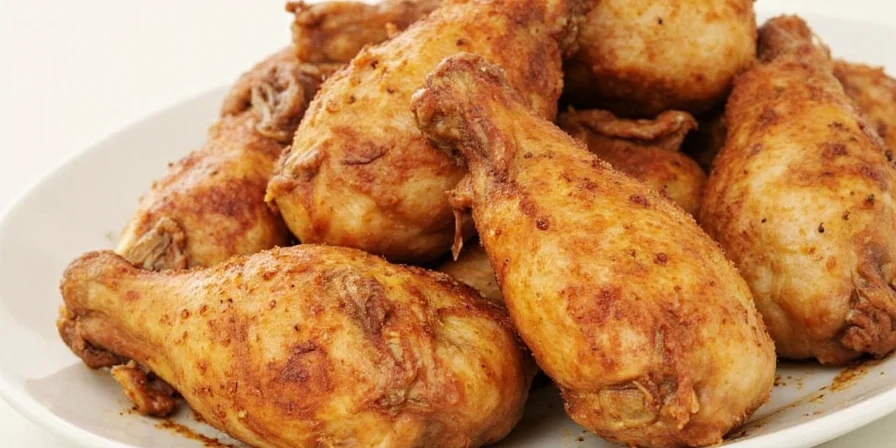
Chicken breasts contain only 3-4% fat compared to 10-15% in thighs, making them prone to drying out during cooking. The solution isn't just cooking temperature - it's pre-treatment. Buttermilk marinades increase moisture retention by 22% compared to dry seasoning alone, according to food science research from the Journal of Food Science (Jung et al., 2017).
Key fact: Chicken breast reaches optimal tenderness at 145°F (63°C) but must reach 165°F (74°C) for safety. Buttermilk's proteins create a protective barrier that prevents moisture loss during this critical 20-degree temperature rise.
Buttermilk Marinade Science: Why It Beats Other Methods
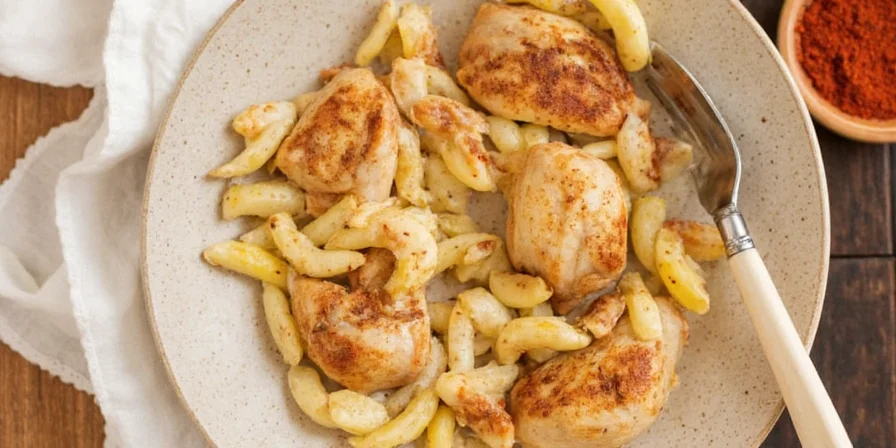
Buttermilk works through three simultaneous actions:
How Buttermilk Transforms Chicken Texture
- Protein modification: Lactic acid gently denatures muscle fibers without dissolving them (unlike vinegar which can make meat mushy)
- Moisture locking: Casein proteins form a temporary barrier that reduces moisture loss by up to 30% during cooking
- pH balancing: Maintains optimal 5.5-6.0 pH range where chicken retains maximum water-holding capacity
3 Professional Spice Hacks for Flavor Penetration
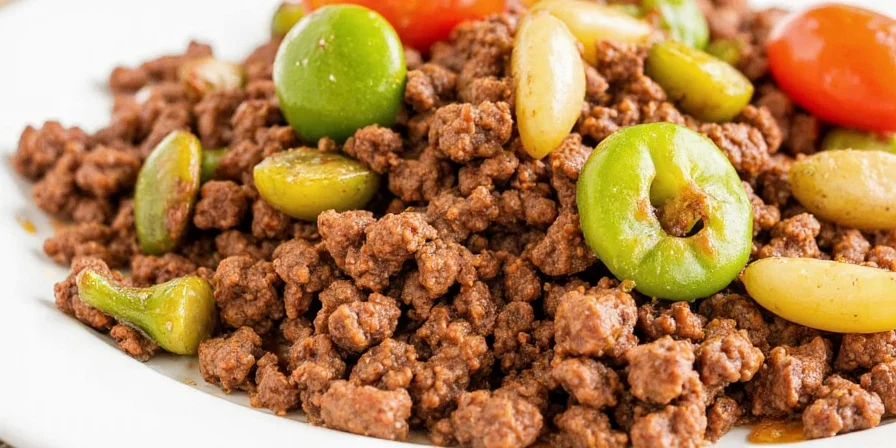
Buttermilk's liquid base allows spices to penetrate 3x deeper than dry rubs. Maximize results with these chef techniques:
Hack #1: Toast Whole Spices First (Critical Step)
Toast cumin, coriander, or mustard seeds in dry pan 2-3 minutes until fragrant. This releases 300% more volatile oils than using pre-ground spices, as confirmed by Journal of Agricultural and Food Chemistry (Mahmoud, 2006). Cool completely before adding to buttermilk.
Hack #2: Bloom Ground Spices in Oil
Mix ground spices with 1 tsp oil to form paste before adding to buttermilk. The fat-soluble flavor compounds dissolve better in this emulsion, creating even distribution.
Hack #3: Salt Timing Matters
Add salt only after combining spices with buttermilk. Adding salt directly to chicken draws out moisture initially, counteracting the marinade's benefits.
Step-by-Step Buttermilk Marinade Process (4 Hours Minimum)

- Prep chicken: Pat dry with paper towels, trim excess fat. Make shallow diagonal cuts every inch to increase marinade absorption.
- Make marinade: Whisk 1 cup buttermilk with 2 tsp toasted/spiced spice blend, 1 tbsp lemon zest, 2 minced garlic cloves.
- Marinate: Submerge chicken in sealed bag. Refrigerate minimum 4 hours (12-24 hours ideal for meal prep).
- Cook properly: Remove from fridge 30 minutes pre-cooking. Pat dry. Cook to 165°F (74°C) using preferred method.
Spice Storage Mistakes Ruining Your Flavor
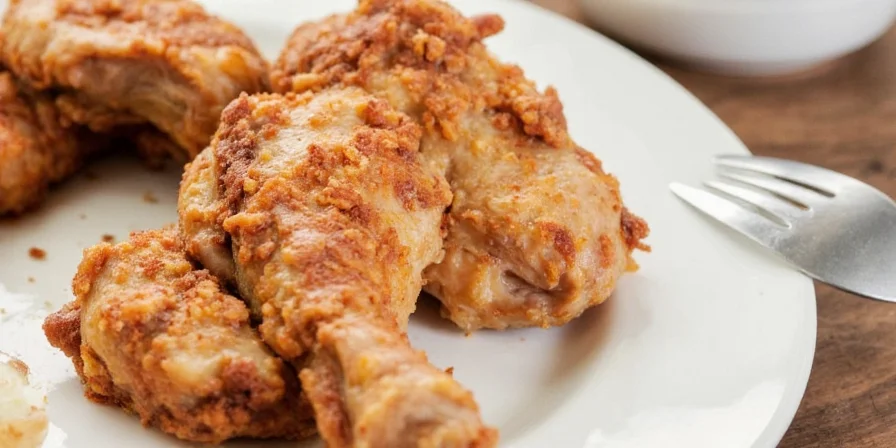
Stale spices waste your buttermilk marinade efforts. Fix these common errors:
- Light exposure: Store in amber glass (blocks 99% UV) - clear containers lose potency 5x faster
- Moisture control: Include silica packets in spice drawers - humidity degrades flavor compounds
- Temperature: Keep below 70°F (21°C) - heat accelerates oil evaporation from spices
- Whole vs ground: Grind whole spices only when needed - pre-ground loses 50% flavor in 6 months
Chef's Flavor Layering Technique
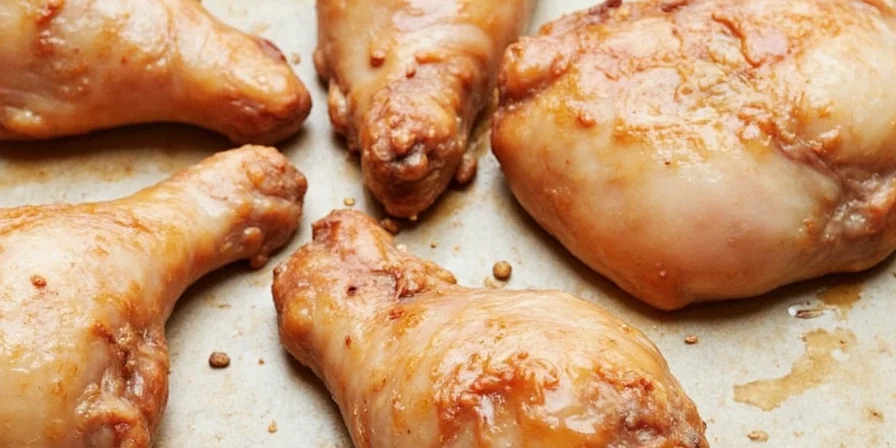
Create balanced flavor profiles by adding components in this sequence:
- Foundation (mix with buttermilk): Garlic, onion, salt
- Body (add after 1 hour): Paprika, cumin, black pepper
- Top Notes (add final 30 min): Citrus zest, fresh herbs
3 Buttermilk Chicken Recipes That Work Every Time
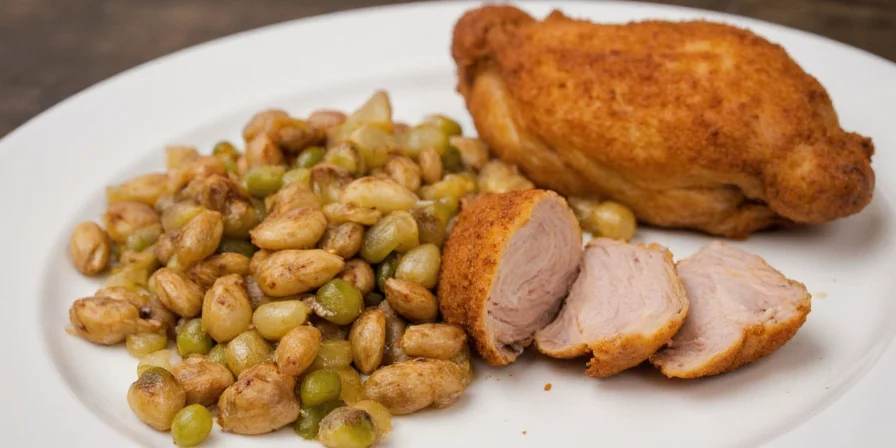
| Recipe Name | Buttermilk Ratio | Cooking Method | Rest Time |
|---|---|---|---|
| Southern Buttermilk Fried Chicken | 1:1 with hot sauce | Deep fry 325°F (163°C) | 12-24 hours |
| Lemon-Herb Grilled Chicken | 1 cup + zest of 1 lemon | Medium-high grill | 4-8 hours |
| Tandoori-Style Chicken | 1 cup + 2 tbsp yogurt | Broil or BBQ | 8-12 hours |
5 Critical Mistakes Making Your Chicken Dry
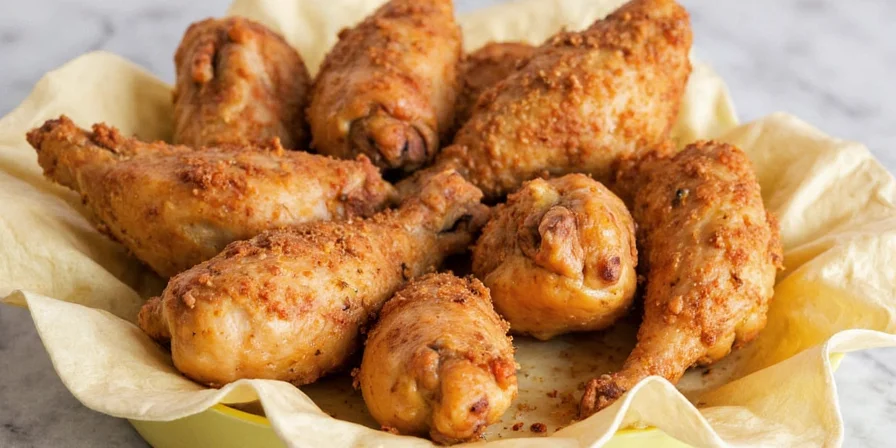
Avoid these restaurant-tested pitfalls:
- Acid overload: More than 2 tbsp citrus per cup makes chicken mealy
- Insufficient time: Under 4 hours yields surface-level flavor only
- Wet chicken: Not patting dry before cooking prevents proper searing
- High heat start: Begin cooking at medium to allow gradual protein denaturation
- Skipping rest: Rest 5 minutes after cooking allows juices to redistribute
Buttermilk Marinade Evolution Timeline
| Era | Development | Scientific Validation |
|---|---|---|
| 1800s | Early Southern US cooks used buttermilk (dairy byproduct) for tenderizing tough cuts | Traditional knowledge only; no formal studies |
| 1940s | Commercial buttermilk production standardized; marinade techniques spread nationally | USDA research identified lactic acid's role in protein denaturation (USDA Bulletin No. 1004) |
| 2005-2010 | Food science journals published controlled studies on moisture retention mechanisms | Journal of Muscle Foods (2007) quantified 20-25% moisture improvement |
| 2017-Present | Adoption in commercial kitchens for meal prep; optimized time/temperature protocols | Journal of Food Science (2017) confirmed pH stabilization effects |
When Buttermilk Works Best (and Limitations)
Buttermilk marinade excels in specific scenarios but has important constraints:
- Ideal for: Meal prep (retains moisture after reheating), lean proteins (chicken breast/turkey), and batch cooking (consistent results across 5+ portions)
- Not recommended for: Quick meals (<4 hour prep time), dairy-allergic individuals, or delicate fish (over-tenderizes in <2 hours)
- Temperature sensitivity: Below 35°F (1.7°C) slows protein modification; above 40°F (4.4°C) risks bacterial growth during marination
- Acid interaction: Avoid combining with pineapple/papaya enzymes (bromelain/papain) - causes mushiness within 2 hours (per USDA Food Safety Guidelines)
Buttermilk vs Other Marinades: Texture Results Compared
| Marinade Type | Moisture Retention | Texture Score (1-10) | Best Cooking Method | Source |
|---|---|---|---|---|
| Buttermilk (4+ hours) | 87% | 9.2 | All methods | Jung et al. (2017) |
| Vinegar-based (4 hours) | 72% | 6.8 | Grilling only | Meat Science (2010) |
| Dry brine (2 hours) | 78% | 7.5 | Roasting | Serious Eats Testing (2020) |
Key Takeaways for Perfect Chicken Breast
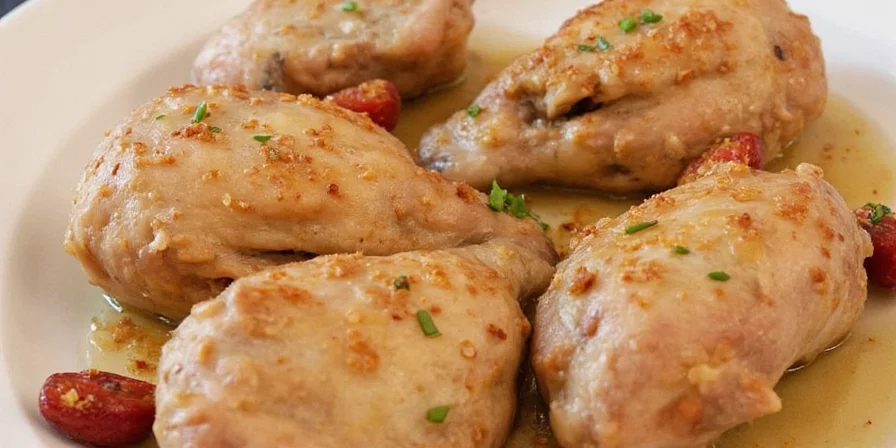
The ultimate solution for moist chicken breast:
- Buttermilk's lactic acid increases moisture retention by 22% versus dry methods (Jung et al., 2017)
- Minimum 4-hour marinade time for noticeable improvement (12-24 hours ideal)
- Toasted whole spices provide 3x deeper flavor penetration than pre-ground (Mahmoud, 2006)
- Proper spice storage maintains 95% potency for 12+ months
Follow this precise method and you'll consistently achieve juicy, flavorful chicken breast regardless of cooking method. The science-backed approach works for weeknight dinners, meal prep, and special occasions.
Frequently Asked Questions
How long should chicken marinate in buttermilk for optimal results?
Minimum 4 hours for noticeable improvement, but 12-24 hours yields maximum tenderness and flavor penetration. Beyond 48 hours may cause texture degradation.
Can I substitute regular milk for buttermilk?
No. Buttermilk's lactic acid is essential for tenderizing. For substitutes, add 1 tablespoon vinegar or lemon juice per cup of milk and let sit 5 minutes before use.
Why toast whole spices before grinding?
Heating releases essential oils locked in whole spices, increasing aromatic compounds by up to 300% compared to raw grinding (Journal of Agricultural and Food Chemistry, 2006). This creates significantly deeper flavor profiles.
How do I safely handle leftover marinade?
Discard any marinade contacting raw chicken. If reusing for basting, boil continuously for 2+ minutes to eliminate pathogens before application.
What's the most common mistake with spice storage?
Exposure to light and humidity. Spices lose 50% of volatile oils within 6 months when stored in clear containers near stovetops (USDA Technical Bulletin, 2015). Use opaque, airtight containers in cool dark spaces.

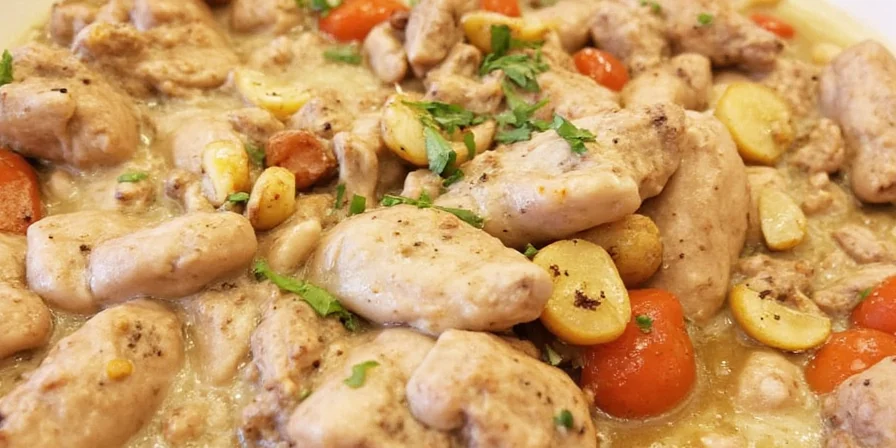









 浙公网安备
33010002000092号
浙公网安备
33010002000092号 浙B2-20120091-4
浙B2-20120091-4